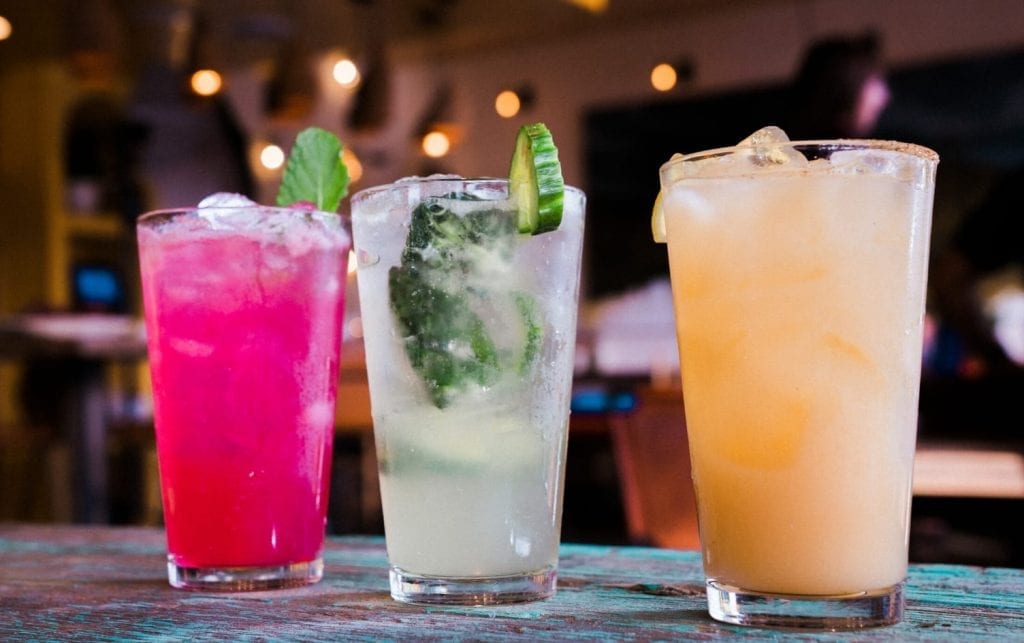
Summer is here—and so are the heatwaves.
Heat waves are periods of time when temperatures are higher than is normal for a region. For many, it just seems like time to stay indoors and crank up the air conditioning. But heat waves can actually pose real health risks.
Exposure to extreme temperatures can cause dehydration, heat exhaustion, heat stroke, and even cardiovascular strain and respiratory issues. Science also shows that it can have significant impacts on how you sleep, move, and—our favorite topic—how you eat.
According to one study, people tend to eat less due to loss of appetite on hot summer days. This is caused by the hypothalamus, the part of your brain that regulates your body temperature and hunger cues. As heat causes your body temperature to rise, your hypothalamus works hard to cool you down. And because digestion creates heat, the hypothalamus suppresses cravings and hunger pangs.
It’s still essential to fuel your body with the right foods and drinks, though, especially since heat can also take a toll on your mood and energy.
“Planning meals and snacks or keeping cool snacks on hand is a good way to stay fueled,” explains MyFitnessPal registered dietitian Joanna Gregg. “Being proactive with your eating can help you avoid energy slumps and feeling distracted, tired, or irritable. For example if you typically eat at noon make sure you have a plan for lunch, whether you feel hungry or not. Even a snack will do!”
But what exactly should you eat and drink in a heat wave? Generally, if you’re eating a balanced meal, anything is fair game. There are some food and drink options that may be better at supporting your body through heat waves, though.
What to Eat and Drink During a Heat Wave
Water, water, water
We figured we’d kick off the list but stating the obvious.
“When it’s hot, our bodies perspire more to cool down which is why we need to consume more fluids on hot days,” explains Gregg. “It is rare but possible to drink too much water. Our bodies have a built-in mechanism that causes thirst when we need water, so being aware of that feeling and drinking when you feel thirsty is best.”
Men should aim for 15.5 cups (125 ounces) of fluid per day; women should aim for 11.5 cups (91 ounces) per day.
That may sound like a lot but “any beverages that contain mostly water are good for hydration. Just try to avoid beverages with too much added sugar,” suggests Gregg.
Fun Fact: In 2023, MyFitnessPal members logged over 5B cups of water! Start logging your water now.
Fruits and vegetables
Fruits and vegetables are a great natural source of water. “Their water content is what allows them to be consumed in larger volume for less calories,” explains Gregg. “My favorite summer picks are watermelon, cucumber, oranges, strawberries, and tomatoes.”
Toss any of these in your cooler or as a snack on the go to keep yourself full and hydrated during the hot months. You can also add fruits to your water to naturally flavor it!
Cold (and hydrating!) snacks
“Cold snacks are a great way to keep the heat at bay,” Gregg says. “And anything with fruits and vegetables is going to have a good amount of water and vitamins and minerals to help with hydration.”
Need some ideas? Try celery with peanut butter, yogurt with strawberries, watermelon or grapes with string cheese, or cottage cheese with cucumber.
Other Nutrition Tips For Surviving a Heat Wave
Limit Alcohol
Alcohol and caffeine are often believed to cause dehydration but Gregg says there actually isn’t a lot of strong evidence to back these claims.
“If you are drinking alcohol or sugary beverages in place of water, though, it can definitely cause a disruption in your hydration status and increase urination.”
Limiting the amount of these beverages consumed and focusing on primarily drinking water is best.


Enjoy Meat in Moderation
Meat sweats aren’t scientifically-proven, but eating large amounts of meat may increase your body temperature, though most people likely won’t notice any significant change.
“Food digestion generates energy and heat. Protein digestion, in particular, requires more energy to break down compared to fat and carbohydrates,” says Gregg. “Unless you are eating copious amounts of meat and notice your body temperature is affected, you can continue to eat meat. But, if you’re worried about your core body temperature, you could consider eating it in smaller servings or trying plant based proteins instead.”
A Balanced Diet Should Meet Your Electrolyte Needs
The average person eating a well balanced diet likely gets enough electrolytes through food consumption. Electrolyte replacement is only really needed if you sweat a lot due to an increase in humidity or activity.
In that case, Gregg says hydration tablets like Nuun are a good quick way to replenish electrolytes.
“When choosing an electrolyte replacement beverage look for water, electrolytes—as in sodium, potassium, magnesium and calcium—and additional minerals. Calories from carbohydrates should be approximately 6-8%.”
For daily activities—think: yard work and walking the dog—and lower intensity activity that’s less than one hour and results in minimal sweat loss, “sports drinks with lower sodium levels will replenish your stores,” suggest Gregg. “Just make sure the one you choose has lower sodium levels. Some tablets and sticks are 500-1000 mg sodium which is really not necessary unless exercising outside and losing lots of fluids/salty sweat.”
The Bottom Line
Listen to your body and let it call the shots.
“Paying attention to your body and hunger and thirst cues is the best way to keep your body performing optimally regardless of the heat,” says Gregg.
Stay cool and balanced (in nutrition and life)!






